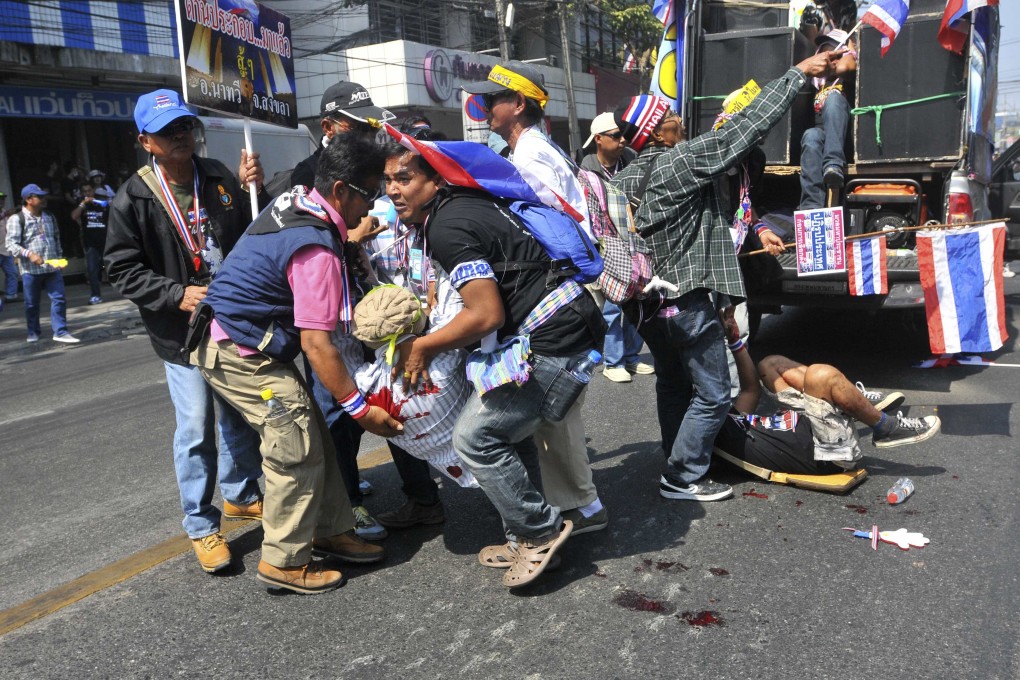Breaking | At least 28 hurt in blast at Bangkok opposition march: officials
An explosion in the Thai capital has wounded at least 28 as anti-government protesters seek to shut down the government of Yingluck Shinawatra

A bomb blast struck an anti-government protest march in the Thai capital on Friday, wounding at least 28 people, officials said, sending tensions soaring following weeks of mass opposition rallies.
It is the latest in a series of attacks by unknown assailants against demonstrators seeking to oust Prime Minister Yingluck Shinawatra.
The protest movement said the blast happened shortly before rally leader Suthep Thaugsuban was due to march past the spot.
“The bomb went off about 30 metres from Suthep and then his bodyguards escorted him back to a rally stage,” spokesman Akanat Promphan told reporters.
Television footage showed several people lying on the ground as ambulances rushed away the wounded. Protesters were seen searching nearby buildings for the attackers.
Police were investigating what type of explosive device caused the blast.